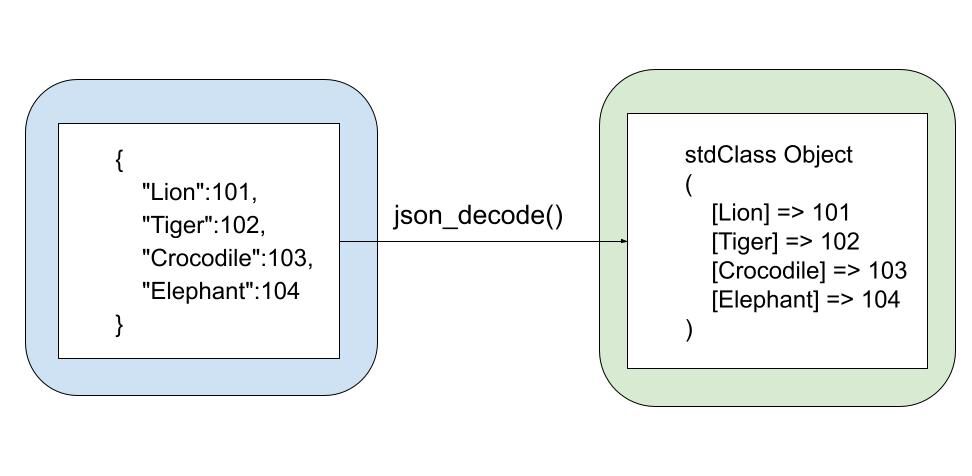

If (typeof(path) = 'undefined') var path= If ( property_exists ( $MyStdClass, $Search ) ) )) įoo=true&bar=false&baz=1&baz=2&baz=1&.etc Var_dump ( "instanceof:", $MyStdClass -> $Search, "" ) If ( $MyStdClass -> $Search instanceof $MyStdClass ) Throw new Exception ( " $Search isn't a Instance of 'stdClass' Class by json_decode()." ) $MyStdClass = json_decode ( $JSON_STRING ) $body -> appendChild ( $dom -> createElement ( "forward", "Hallo" ) ) appendChild ( $dom -> createElement ( "body" ) ) You can't transport Objects or serialize Classes, json_* replace it bei stdClass! All JSON object keys must be enclosed in double-quotes.īasically, if there's ever any question for what is permitted, just read the JSON spec: If you read it closely, you'll see that the JSON spec clearly does not allow this.

And the issue of adding an extra comma at the end of an array is likewise not technically permitted in strict JSON, even though it will work in JavaScript.Īnd xris, while the example you provided with an unenclosed string key within an object is valid JavaScript, JavaScript != JSON. the same JSON would be decoded into an object of class stdClass with two. It is intended for use with client-side Javascript applications that make use of HTTPRequest to perform server communication functions - data can be encoded into JSON. Solutions & Examples for PHP Programmers David Sklar, Adam Trachtenberg. () () () () () This package provides a simple encoder and decoder for JSON notation. This library works with and without quoted keys. Using the operator returns true if the objects you are comparing are the same instance of the same class. As far as I can tell, this function is only allowing whatever is explicitly outlined in RFC 4627, the JSON spec.įor instance, ganswijk, the reason you can't use single quotes to enclose strings is because the spec makes no mention of allowing single quotes (and therefore they are not allowed). PHP implementation of jsonencode/decode for PHP 7.2 and higher. There are two methods for comparing objects. However, keep in mind that JSON is ***not*** JavaScript, but instead just a subset of JavaScript.
#PHP JSON DECODE OBJECT STDCLASS CODE#
There have been a couple of comments now alerting us to the fact that certain expressions that are valid JavaScript code are not permitted within json_decode. Reported as a bug, but oddly enough, it was closed as not a bug. The following each returns NULL, as you might expect: Observe the following examples, none of which contain valid JSON: Json_decode()'s handling of invalid JSON is very flaky, and it is very hard to reliably determine if the decoding succeeded or not. Note: toSource() is part of JavaScript 1.3 but only implemented in Mozilla based javascript engines (not Opera/IE/Safari/Chrome).

My name is Nick Hatter and I am currently studying MEng Computer Science at the School of Electronics and Computer Science (ECS) in Southampton University.With two lines you can convert your string from JavaScript toSource() (see ) output format to JSON accepted format. This was my first blog post for this site, so I feel an introduction is in order. Hopefully this will save you having to bang your head against a wall when you can't parse even the most simplest of JSON.įor good measure, you may well want to try this example from the php.net website:Īssuming you've fixed the problem, this should output: You are accessing it with array-like syntax: echo jstringdecoded'urls'1 Whereas object is returned. etc/rc.d/httpd restart depending on your distro) Save the configuration file and restart Apache (eg.Uncomment the line extension=json.so by removing the semi-colon.You will find a list of extensions which have been conveniently commented out to improve PHP performance. In the configuration file there will be a section called Dynamic Extensions.nano /etc/php/php.ini depending on distro) Most likely, you will be given this error message now: Php Fatal Error Call To Undefined Function Json_decode.If you want to parse it into a PHP object, then use jsondecode(string). Enable error messages to be shown by writing ini_set('display_errors', '1') in your PHP code. This output looks like this: stdClass Object ( / How do I remove a property.When you do this, instead of objects youll get associative arrays - arrays with strings for keys.
#PHP JSON DECODE OBJECT STDCLASS HOW TO#
Carry on reading if you would like to know how to fix it. Passing true as the second argument to jsondecode(). What will happen is you will be given no output at all. When you have first installed PHP, you may find that json_decode doesn't work.


 0 kommentar(er)
0 kommentar(er)
